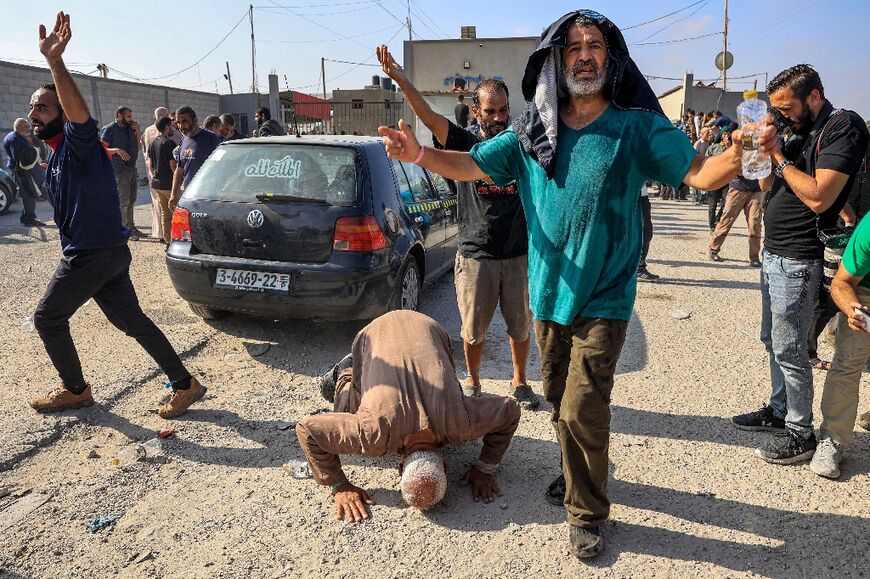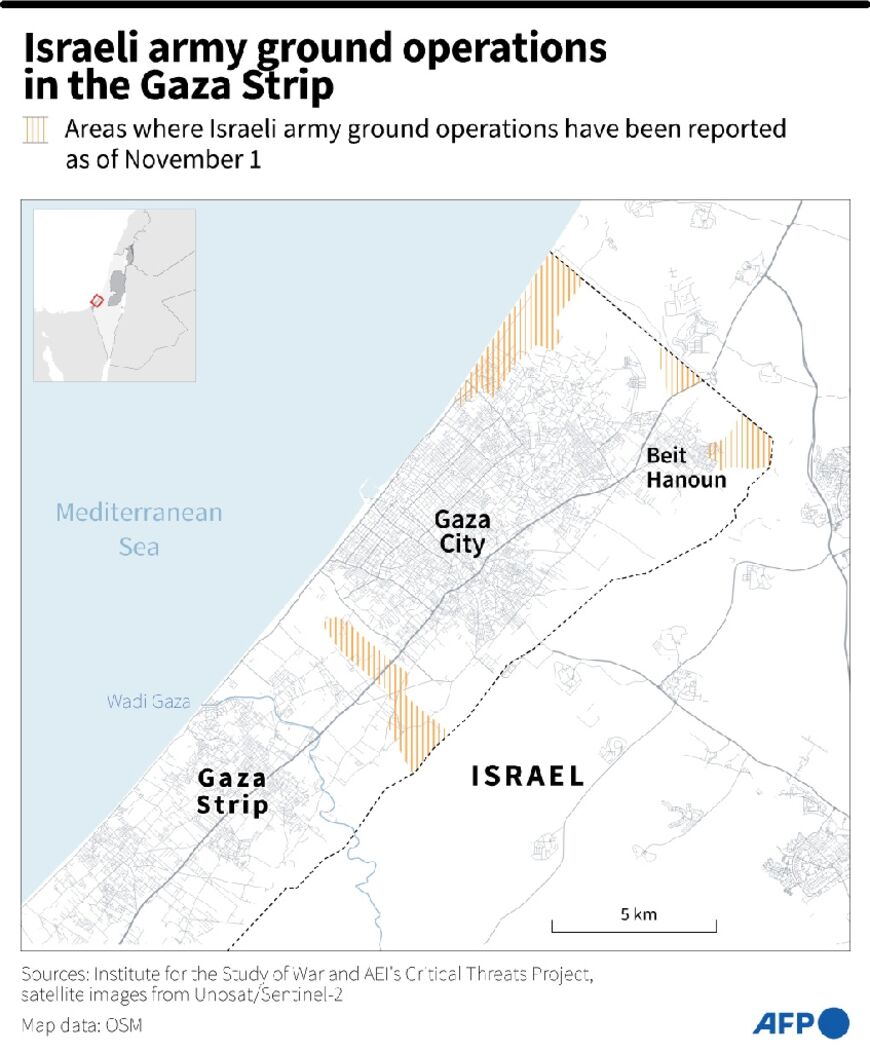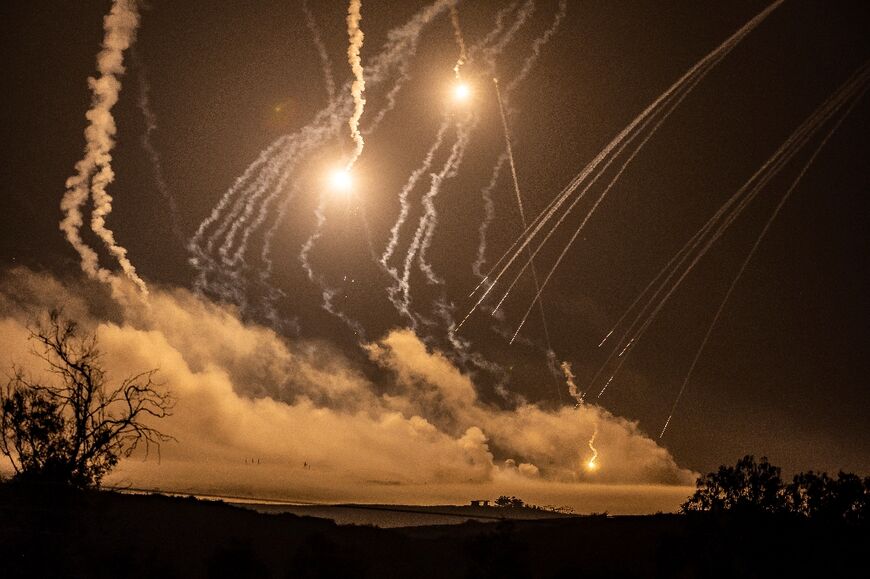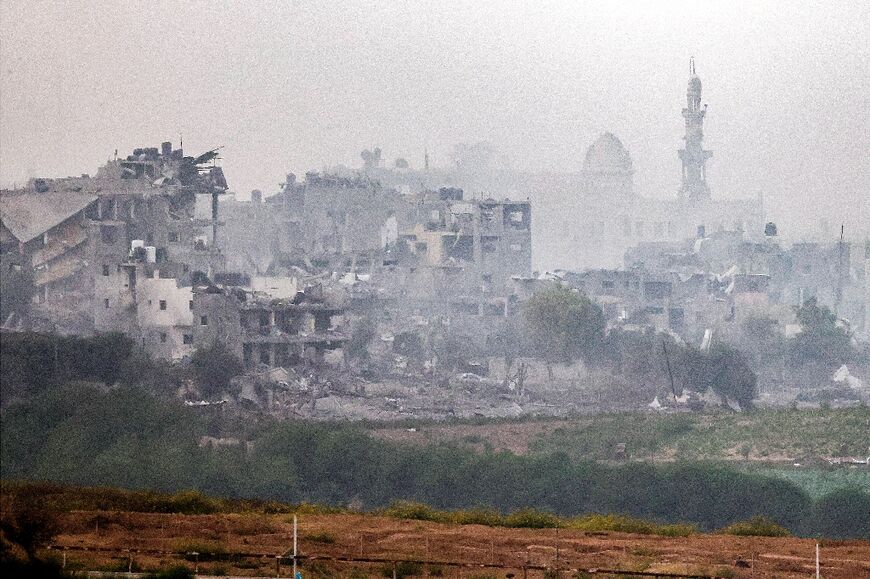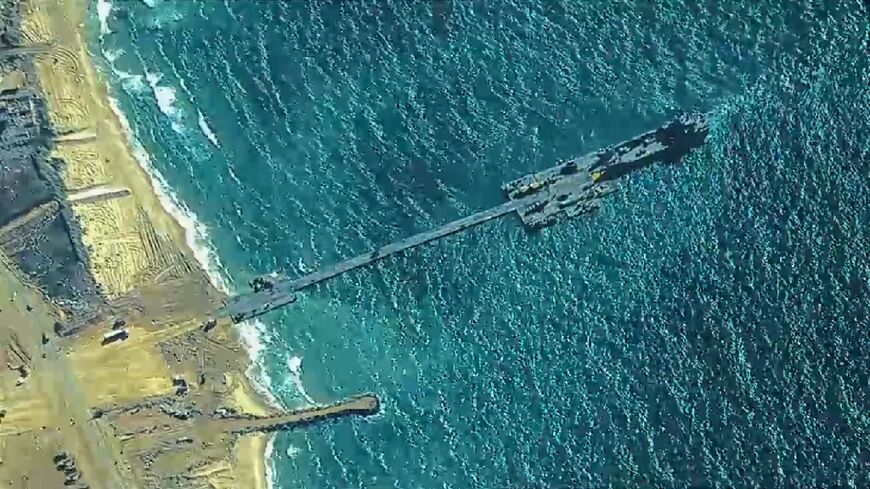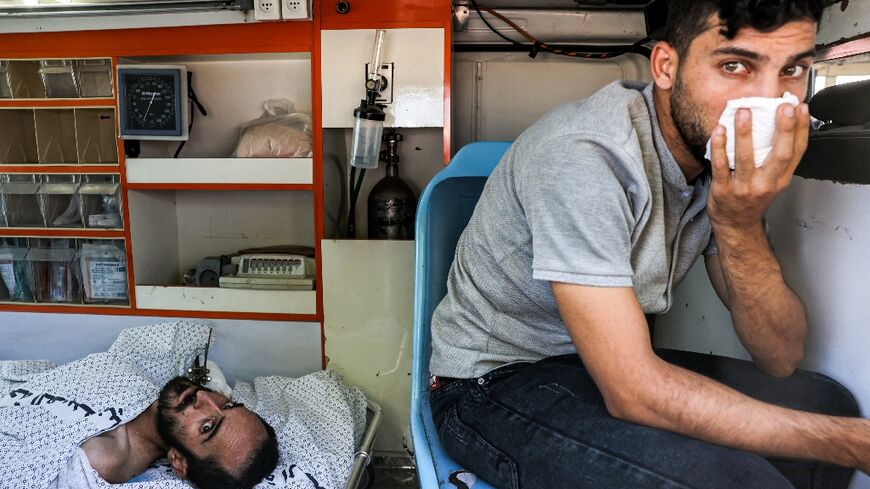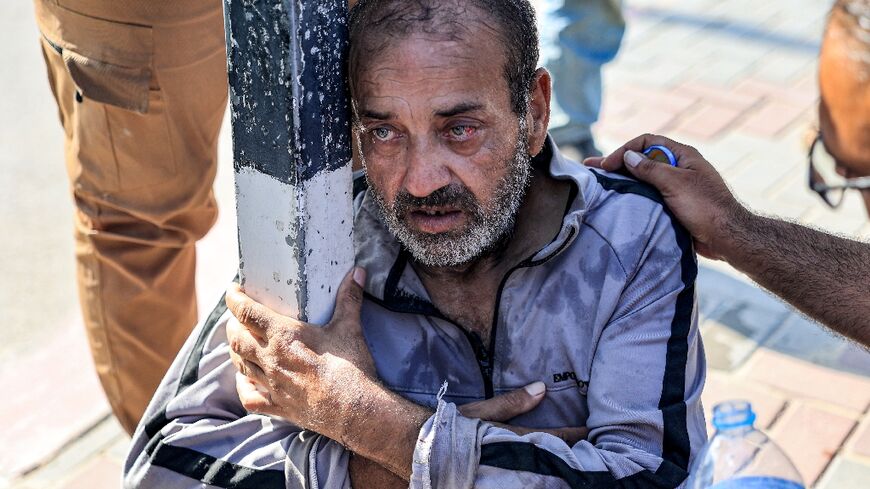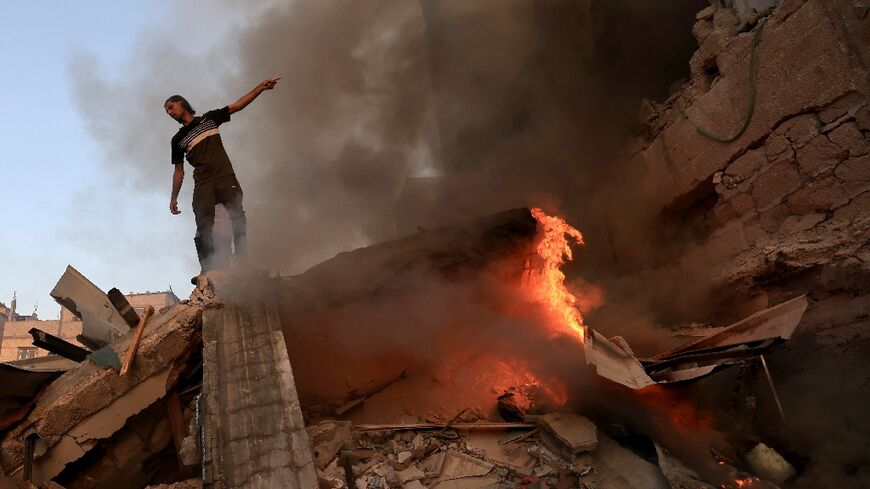Israel says troops encircle Gaza City as Blinken visits
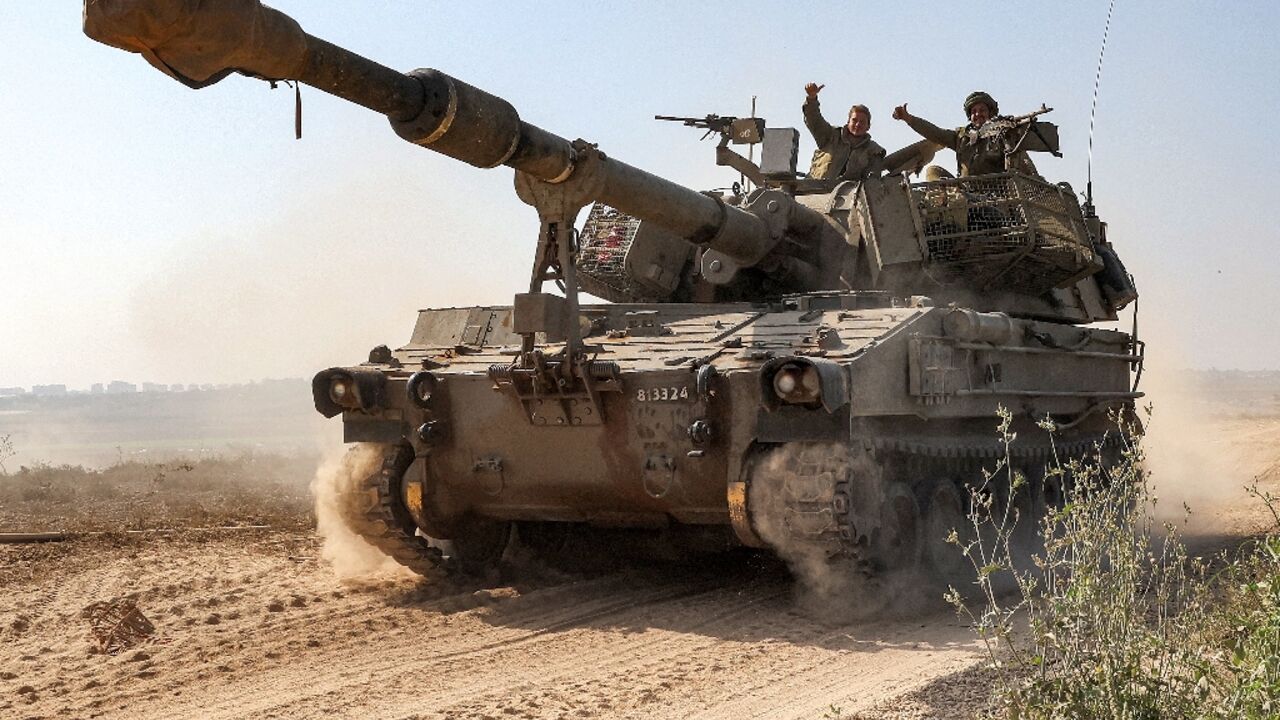
Israeli ground troops fighting a war to destroy Hamas had surrounded Gaza City on Friday as top US diplomat Antony Blinken arrived in Israel and declared that the country has right and a duty to defend itself.
Israel, meanwhile, began expelling thousands of Palestinian workers back to Gaza, despite ongoing fighting and air strikes that have killed thousands of civilians in the territory.
In Geneva, the United Nations launched an emergency aid appeal seeking $1.2 billion to help some 2.7 million people facing a humanitarian crisis in Gaza and the West Bank.
The leader of Lebanon's Iranian-backed Hezbollah, Hassan Nasrallah, was to make a speech later in the day, breaking with weeks of silence, amid concerns of a broader regional conflagration.
Ahead of Blinken's arrival, Israel's military said it had "completed the encirclement" of Gaza's largest city -- signalling a new phase in the nearly month-long conflict.
Fighting was triggered by Hamas' bloody raids on October 7, which Israeli officials say killed more than 1,400 people.
The health ministry in Hamas-run Gaza says more than 9,227 people have died in Israeli bombardments, mostly women and children.
After the Hamas assault, Israeli forces moved to re-establish security on the border, trapping thousands of Palestinian workers inside Israel.
On Friday, officials began to force them back into Gaza, AFP journalists at the Karem Abu Salem crossing saw.
"Thousands of workers who were blocked in Israel since October 7 have been brought back," Hisham Adwan, head of Gaza's crossings authority, told AFP.
- Workers expelled -
Israel had said it would start sending the workers back to Gaza.
"Israel is severing all contact with Gaza. There will be no more Palestinian workers from Gaza," the Israeli security cabinet said on Thursday.
The United Nations Human Rights Office said it was "deeply concerned" about the expulsions.
"They are being sent back, we don't know exactly to where," and whether they "even have a home to go to", spokeswoman Elizabeth Throssell told a news conference in Geneva.
Before the war started, some 18,500 Gazans were holding Israeli work permits, according to Israeli defence officials, but it was not clear how many were in the country on October 7.
New Israeli strikes rocked the Gaza Strip on Friday morning, an AFP correspondent said, and the Gaza health ministry reported at least 15 deaths in Gaza City's Zeitun neighbourhood and seven in Jabalia refugee camp.
The Hamas-controlled health ministry said later 14 Palestinians were killed in an Israeli strike as they fled from north to south Gaza. Witnesses said the strike hit Gaza's coastal road, which the army has previously told civilians to use to travel south.
The Hamas government has said 195 people were killed in Israeli bombardments on Jabalia earlier this week, with hundreds more missing and wounded, figures AFP could not independently verify.
Before his departure, Blinken said he would seek to ensure that harm to Palestinian civilians is reduced, in a visible shift of tone for the United States, which has promised full support and ramped-up military aid to Israel.
But, beginning his visit with talks with President Isaac Herzog, Blinken reiterated the basis of its support, telling reporters: "Israel has not only the right but the obligation to defend itself ... to make sure that this October 7 never happens again,"
Prime Minister Benjamin Netanyahu said Israel had already had some "very impressive successes" with troops "more than on the outskirts of Gaza City. We are advancing," he said late Thursday at a base near Tel Aviv.
Israel's military describes Gaza City as "the centre of the Hamas terror organisation".
Although many of the city's half-a-million residents fled south following Israel's warning to leave ahead of a ground operation, those who stayed behind have endured weeks of aerial bombardment, dwindling supplies and daily carnage.
- 'Curse of history' -
But yet more mayhem seems to lie ahead, as the conflict turns to urban and underground warfare -- with Hamas fighting from a tunnel complex believed to span hundreds of kilometres (miles).
The Ezzedine al-Qassam Brigades, the military wing of Hamas, insisted Israeli soldiers would go home "in black bags".
"Gaza will be the curse of history for Israel," spokesman Abu Obeida said.
Israel's allies have backed its right to self-defence, but there is growing global concern and anger at how Israel has chosen to prosecute the war.
Addressing a summit of Turkic states in the Kazakh capital Astana, Turkish President Recep Tayyip Erdogan called for an immediate ceasefire between Israel and Hamas, saying "crimes against humanity" were being committed in Gaza.
And Irish premier Leo Varadkar expressed concern that Israel's response had gone beyond tackling Hamas in self-defence and now "resembles something more approaching revenge".
The UN Office for the Coordination of Humanitarian Affairs (OCHA) said to meet the needs of the 2,7 million people living in Gaza and the Israeli-occupied West Bank would cost $1.2 billion, and launched an appeal for donors.
Both Israel and the United States have ruled out a blanket ceasefire, which they say would allow Hamas to regroup and resupply.
US President Joe Biden has backed "temporary, localised" pauses in fighting to allow humanitarian work to be done.
- Escape to safety -
Countries around the world recalled their ambassadors from Israel in protest at the strikes. Bolivia severed diplomatic ties.
Israel has sought to show Jabalia was a legitimate target, saying it killed a senior Hamas commander in a tunnel complex below the camp.
On Thursday some 400 more foreigners and dual nationals managed to escape the war to Egypt, along with 60 wounded Palestinians.
Egypt has said it would help evacuate 7,000 foreigners through Rafah, which was to open again on Friday, a source at the crossing told AFP.
The UN said more than 100 trucks with aid crossed into Gaza on Thursday, a significant increase from previous days.
A total of 374 trucks have entered since a US-brokered deal was enacted on October 21, far short of what aid agencies say is needed.
burs-dc/


